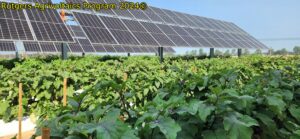Have you had fruit infested by spotted-wing drosophila (SWD) on your farm? Your assistance is needed! A national team of entomologists are gathering information to understand the current impact of SWD on farms and how these impacts have changed over the last 10 years.
If you are willing to share insights from your farm, farms you manage, or growers you work with, please complete this short survey, which will take about 15 minutes or less: https://docs.google.com/forms/d/e/1FAIpQLSeW6rCcyM9vf_sjLJDj0J_6G03jlVbBLZt5rlX7kmzSj0Ypog/viewform
How will this information be used? This information will be used to develop new research goals as part of a USDA Specialty Crop Research Initiative proposal under development. It will also be compared to information collected in similar surveys in 2013 and 2014 to help us understand where challenges still exist for SWD management and what improvements have been made over the last 10 years and shared in extension and research publications.
Who should I contact for more information? For more information about this survey, contact Hannah Levenson, hklevens@ncsu.edu, 919.434.7882. For more information about SWD management, contact members of the project team or your local extension expert.

 The
The 

